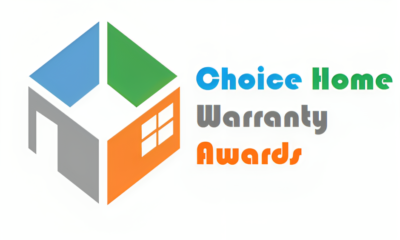News
BK TecHouse digitalizes Coffee farmers’ transactions with Smart Kungahara System

For a long time, Agriculture in Rwanda has been a primary source of income, currently employing 70% of the population and contributing 30% of the country’s GDP.
Increased agricultural output and productivity substantially contributes to the overall economic performance of any country.
To make it possible, public and private partnerships are of crucial relevance to contribute to a resilient agriculture sector.
To support these efforts, BK TecHouse Ltd, the digital innovative power arm of Bank of Kigali Group from inception in 2017, introduced smart agriculture solution known as Smart Nkunganire System (SNS) focused on transforming agriculture from subsistence to commercialized farming through the application of digital solutions that support productivity.
SNS is a supply chain management system built by BK TecHouse Ltd in collaboration with Rwanda Agriculture and Animal Resources Development Board (RAB) to digitalize the end-to-end value chain of the Agro-Input Subsidy program.
The system eases all transactions in the agro-inputs supply chain, helps farmers to specify agro-dealers’ shops from where to get subsidized seeds or fertilizers and enables them identify the number of farmers connected to a particular shop and required quantity in store.
Since the launch of SNS, over 1.4 million farmers and all agro dealers have been registered and validated within SNS and actively use it to receive their agro-inputs, advisory messages and market information among many other benefits.
The smart agriculture solutions have been broadened to reach coffee farmers from across the country to pave their way to wealth and help them shift from analog to digital transactions.
The new solution extended to coffee farmers, coffee washing stations and other stakeholders is dubbed Smart Kungahara System (SKS).The latter was designed by BK TecHouse in partnership with National Agriculture and Export Board (NAEB) to digitize database of stakeholders in coffee value and supply chain.
With Smart Kungahara System, farmers harvest and payments, input distribution and collection of coffee cherries will be recorded through the System.
The introduction of SKS started early August 2019 with training of coffee washing stations managers and cash crop officers from across the country.
The training of stakeholders who were also registered in SKS was concluded on Friday 23rd August 2019 in Ruhango district, Southern Province.
The system will be used by all stakeholders in coffee sector including farmers and Coffee washing stations managers.
How it works
Every farmer will open an account through SKS which serves as an all-in-one platform, combining information on available quantities of unprocessed coffee, parchment coffee and number of coffee trees owned by farmers.
Smart Kungahara phases out analog or paper-based transactions of stakeholders in coffee supply and value chain. It will record all transactions from coffee planting season to the final product that is ready for the market.
According to David Kayisire, Product Lead at BK TecHouse , farmers’ data base and transactions recorded into the digital system will enable them to access loans at the Bank of Kigali.
Farmers already registered at NAEB have been integrated into the system while new farmers will be registered gradually with the support of trained coffee washing stations managers.
The system calculates the quantity of required fertilizers and the farmer uses it to approve delivery of inputs.
Coffee washing stations will use Android application while a coffee farmer using a feature phone can access it dialing *774#, choose NAEB instead of Rwanda Agriculture Board (RAB) and follow guidelines.
A farmer registered in Smart Nkunganire System will use same registration number to log in SKS.
Clement Nizeyimana, the manager and proprietor of Mpanda Coffee washing station based in Ruhango district said the SKS comes in handy to revolutionize the management of the coffee sector.
“Smart Kungahara will record traceability of coffee from the farmer to the buyer accessed through the system. The system will enable transparency of inputs because whatever transactions done in coffee sector will be accessed through it unlike the past where farmers would not receive inputs or have inadequate quantities delivered to them,” he said.
According to Pierre Ngirinshuti, an agronomist at Mayaka Coffee Washing Station, the new system gives real-time information of coffee cherries, and all transactions in coffee supply chain.
“We will no longer use paper-based reports. We expect Smart Kungahara to bring transparency into the management of coffee supply chain and boost productivity,” he promises.
Protais Hakizimana, Coffee Value Officer at NAEB highlights the first phase of the training to cash crop officers and coffee washing stations managers.
“With SKS, we shall get timely information on all transactions in the coffee sector and easily monitor whether inputs have been delivered to right beneficiaries on time. It comes in handy to fast-track the development of coffee sector,” he assures.
So far, 300 coffee washing stations managers from across the country have been trained, registered and created accounts with SKS.
-

 Tech8 months ago
Tech8 months agoGuide to Nextdoorstudios: Your Ultimate Resource
-

 Entertainment8 months ago
Entertainment8 months agoIzanami Backwards: Unveiling the Mysteries
-

 Travel8 months ago
Travel8 months agoTravel Essentials for Women: Your Ultimate Guide
-

 Automotive8 months ago
Automotive8 months agoThe Ultimate Guide to Car Detailing Near Me
-

 Real Estate8 months ago
Real Estate8 months agoChoice Home Warranty Awards: Celebrating Excellence
-

 Entertainment8 months ago
Entertainment8 months agoUnraveling Octopath Traveler II NSP
-

 Entertainment1 year ago
Entertainment1 year agoShowbizztoday.com Entertainment Lifestyle Music Fashion: Your Ultimate Guide
-

 Home and Garden9 months ago
Home and Garden9 months agoExploring the World of Spelling Bee Forums: Your Ultimate Guide












